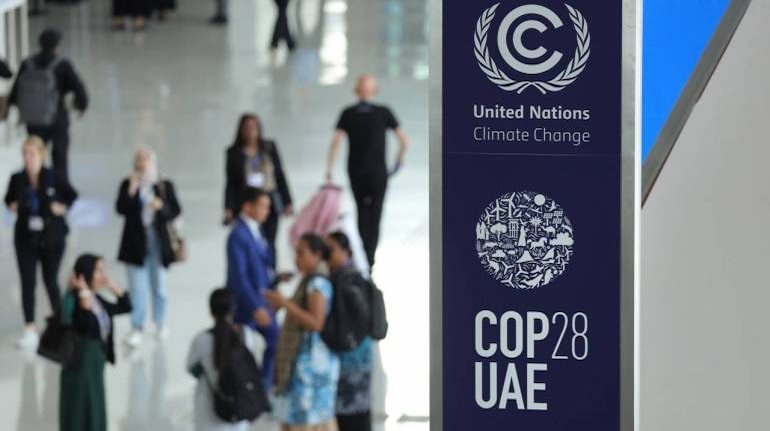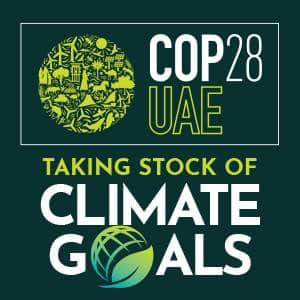
At the core of the United Nations Framework Convention on Climate Change, established in 1992, lies its ambition to avert "dangerous" global warming. Almost every nation globally is now part of this convention, hence the assembly known as the Conference of the Parties (COP).
The UAE celebrates the successful conclusion of a global event of scale, prominence and divisive nature. The world sighs a relief that one more year of discussions and negotiations is done. COP28. A global climate-diplomacy event which had climate-action as its core agenda.
That’s where the biggest divide emerges. While the event is to get climate action moving, the worry is about what happens, next, after these events. The bulk of the event is to agree to specific words in the final agreement. In the COP28 negotiations, a division had emerged regarding the initial draft's commitment to fully "phase out" fossil fuels, encountering resistance from nations heavily reliant on them, including consumers like India and producers like Saudi Arabia. Ultimately, consensus prevailed by urging nations to "transition away" from fossil fuels in a "just, equitable, and orderly manner" aiming for an accelerated shift in the coming years to reach net-zero by 2050. The conclusive draft additionally calls on UN members to triple the global renewable energy capacity by 2030.

Depending on one's perspective, this statement signifies either a genuine breakthrough averting catastrophe or an indication of how far off track things have deviated, given its apparent obviousness.
Read | COP28 ends: A look at key decisions from the world’s biggest climate summit
The annual forum has promoted much business for the hospitality and airline sector with associated knowledge warriors like consulting firms, who help support data for each word negotiation. At the end of the conference, what has changed? Since the treaty's inception, the world has spewed out more CO2 than in all preceding millennia of human history.
Where’s The Science & Humanism?
Why did it take twenty-eight negotiation sessions to acknowledge the self-evident fact that addressing climate change entails phasing out or transitioning away from fossil fuels? Did they need a global epiphany or just a good cup of coffee? In this case, Arabic coffee?
Well that’s the word-crafting rights that nations seem to use every year. Climate action demands more than an annual word jamboree at COP agreements. It requires a marriage of science and humanism, not just linguistic acrobatics in English. The urgency of addressing climate change necessitates concrete measures founded on scientific principles, coupled with a deep understanding of the human impact.
Mere semantic gymnastics won't cut it when the stakes are planetary, and the consequences are felt by people worldwide. It's time to move beyond eloquent agreements and prioritise actions grounded in the dual pillars of rigorous scientific understanding and a humane approach to safeguarding our collective future.
Ultimately, what truly matters, especially in a year marked by record-high temperatures, is not the language countries agree upon but their actual actions. The Saudis, in attempting to resist the phase out language, arguably demonstrated honesty about their commitment to continue exporting and using fossil fuels. Their economic stability depends on it, at least for now.
Furthermore, the credibility of climate commitments from affluent nations, especially those pledging financial aid and support to other countries, remains dubious. Despite promises of climate funding, these wealthy nations are yet to substantiate their commitments with actual funding as tangible action. The rhetoric of financial assistance needs to be translated into meaningful contributions that facilitate the transition to sustainable practices in developing regions.
Collective Reluctance
In contrast, while countries like the United States advocated for a fossil fuel phase out at COP, their domestic actions tell a different story. The US, a major player in these global discussions, continues to maintain and even escalate its status as the world's leading oil and natural gas producer. With a daily output of approximately twenty million barrels, the US showcases a stark contrast between its advocacy on the international stage and the reality of its fossil fuel production at home. This dissonance underscores the pressing need for not just promises but concrete steps towards a sustainable, low-carbon future.
Also Read : COP28 is turning into a trade show. And that's not a bad thing
This grim track record underscores diverse failures and injustices, all tied together by a collective reluctance—mainly from the Global North but increasingly echoed by Southern nations—to confront a straightforward set of geophysical truths. Burning fossil fuels inevitably yields carbon dioxide, which lingers in the atmosphere for centuries, leading to a warmer world as it accumulates. Adding to the catastrophe, these carbon-dioxide emissions are acidifying the oceans.
After twenty-eight COPs and two decades of increasing emissions, skepticism is undeniably warranted. Maybe the importance of the UAE. Consensus will become evident by the next year's COP, set to occur in another oil-dependent state, Azerbaijan. This raises the question: Do these COP events hold any merit?
Amidst the high-stakes climate negotiations, one can't help but wonder if COP secretly stands for the "Chicken-Out Place." After all, despite the urgency of the global climate crisis, some countries seem adept at dancing around substantial commitments like it's a climate masquerade ball. Is COP where leaders gather to flex their verbal muscles while conveniently avoiding the heavy lifting needed to address climate change? It's time for less talk and more action – perhaps a renaming to "Catalyst for Overdue Progress" is in order.
Srinath Sridharan is Author, Policy Researcher & Corporate Advisor, Twitter: @ssmumbai. Views are personal, and do not represent the stand of this publication.
Discover the latest Business News, Sensex, and Nifty updates. Obtain Personal Finance insights, tax queries, and expert opinions on Moneycontrol or download the Moneycontrol App to stay updated!